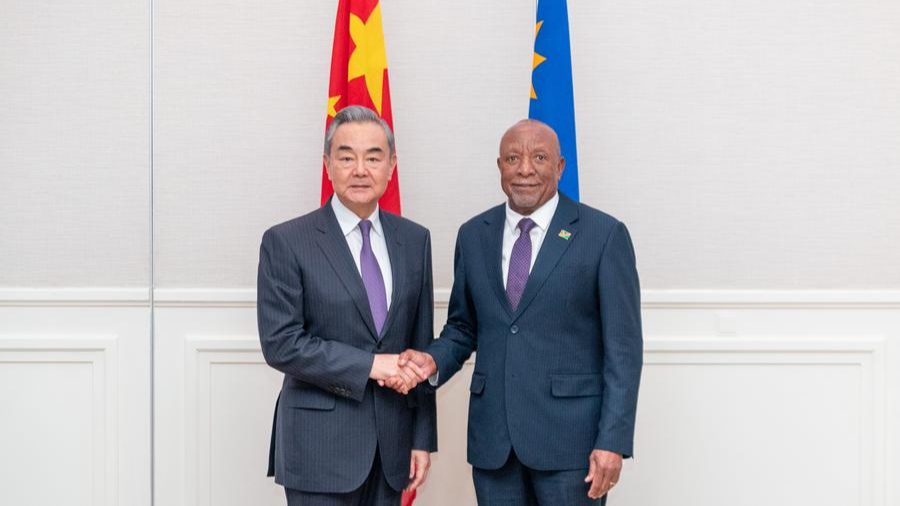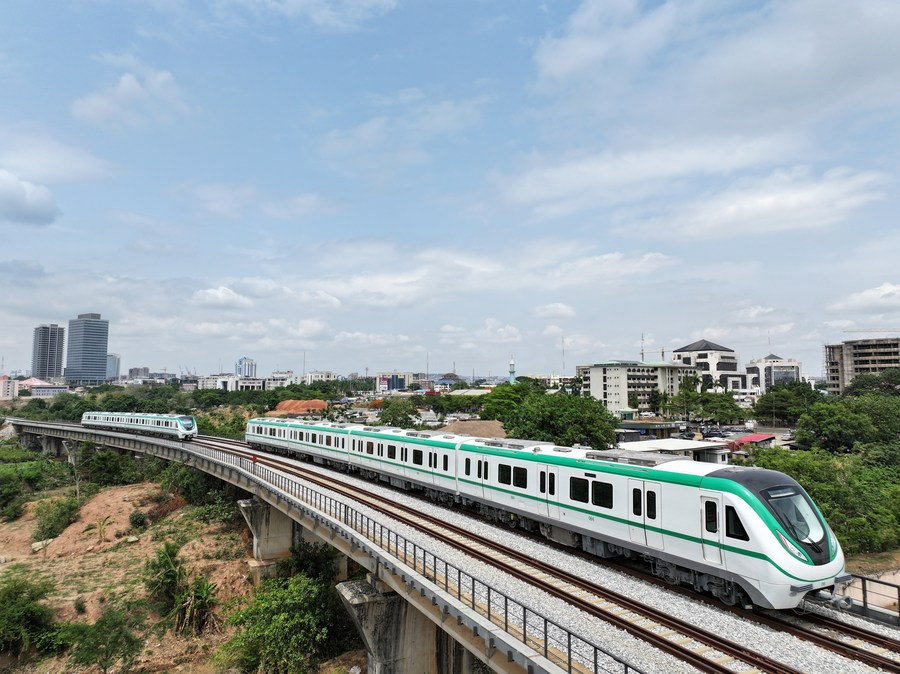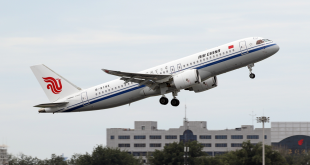Published: January 13,2025

In a 35th consecutive visit by a Chinese foreign minister to Africa, Member of the Political Bureau of the CPC Central Committee and Minister of Foreign Affairs Wang Yi is visiting Namibia, the Republic of the Congo, Chad and Nigeria between January 5 and 11.
The China-Namibia ties are rooted in political understanding, cultural cooperation and academic exchanges. Windhoek appreciates China’s important role and the impact of Chinese investments in Africa’s development. Namibian President Nangolo Mbumba last month described Beijing’s relations with the Global South as unique because it always looked to establish win-win cooperation with “no historical hangover” and because China “was never a colonizer in Africa or the Caribbean.”
While China’s investments in the Husab Uranium Project and Rossing Uranium Mine have contributed to about 7 percent of Namibia’s GDP, further financial support of more than 1.5 billion Namibian dollars (about $80.2 million) at the Summit of the Forum on China-Africa Cooperation (FOCAC) last September was committed to helping Windhoek to construct housing facilities for police officers and other future projects as well as bolster its drought relief efforts as part of Beijing’s push to promote mutual development and build a high-level community with a shared future.
During the FOCAC summit, Chinese President Xi Jinping met with President Denis Sassou Nguesso of the Republic of the Congo and acclaimed the country’s progress in consolidating peace and development under his leadership. Leaders of the two countries later witnessed the signing of bilateral agreements including the Belt and Road Initiative (BRI) and digital economy as the first ladies of the two countries held discussions on promoting healthcare, education and women and children’s welfare in Africa.
Beijing’s development projects have transformed the Congo’s infrastructure landscape, bringing benefits to the Congolese economy and prosperity to the domestic people. The No. 1 National Highway – a key outcome of the FOCAC and widely known as the “Dream Road,” linking Brazzaville, the capital, with Pointe-Noire, the economic center – has become an economic lifeline for the Congo by reducing the travel time and distance, transporting about 90 percent of the country major products, generating 10,000 jobs and training more than 4,000 local technicians.
China has been Chad’s largest trading and investment partner for quite a few years. Beijing supports N’Djamena in pursuing its independent development path and is committed to playing its role in the country’s development. The bilateral relations have been elevated to a strategic partnership. Chad’s President Mahamat Idriss Deby Itno believes that China’s sustained development brings opportunities for his country, Africa and the entire world.
At the FOCAC, leading Chinese companies and institutions signed six memorandums of understanding with Chad in areas such as energy, water, agriculture and infrastructure that would contribute to the country’s development and the well-being of its people.
China and Nigeria have maintained warm ties for almost 54 years since 1971 and are locked in a close economic relationship with a bilateral trade volume reaching $1.31 billion, a year-on-year increase of 16.5 percent in 2023. Ahead of the FOCAC, Xi and Nigerian President Bola Tinubu held talks, inking several deals including on BRI and elevating bilateral ties to a comprehensive strategic partnership, demonstrating their commitment to using the strengthened relationship for “robust development, stability and security” across Africa.
In the latest sign of deepening ties, Beijing and Abuja recently renewed a currency swap deal worth over $2 billion. The deal is expected to boost trade and investment between the two countries, ease pressure on Nigeria’s foreign exchange reserves, reduce transaction costs and stabilize the country’s economy.

Chinese-made electric multiple unit (EMU) trains run on the metro rail track in Abuja, Nigeria, May 23, 2024. /Xinhua
In a world plagued by conflicts in Europe and the Middle East, protectionism, political turmoil in several Western countries and economic crisis exacerbated by U.S. hegemony, the China-Africa relationship has solidified through a joint vision of promoting peace in the world, extending respect to each other, increasing economic engagement and pursuing win-win cooperation. Wang’s four-nation trip would open new horizons for the China-Africa cooperation, delivering a message of peace, harmony and mutually beneficial development.
It isn’t just China’s investment and lending that portrays Being as a trusted African partner; it is also China’s pledge to share its experiences in poverty alleviation, technology and development that in contrast to the U.S. and other Western powers has won admiration from African leaders. This has made Beijing an inspiration for the countries across the continent.
Wang’s trip to Africa not only maintains the long-held tradition of visiting Africa but also aims to put actions behind words by implementing the outcomes of the FOCAC. This consistent and steadfast commitment to the continental people, stability and sustained development will break the ground to forge an all-weather China-Africa community with a shared future for the new era, a partnership that is more resilient and capable of jointly withstanding uncertainties and navigating regional and global challenges toward common prosperity for both sides.
Source: CGTN
 Africa -China Review Africa -China Cooperation and Transformation
Africa -China Review Africa -China Cooperation and Transformation
